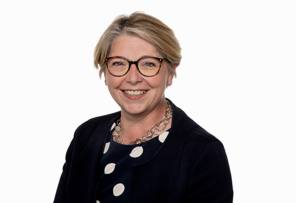

Inflation jumped to 3.2 per cent in the 12 months to August 2021, up from 2 per cent in July, making it the largest ever recorded increase.
But the central bank's monetary policy committee today (September 23) voted unanimously to maintain the base rate of interest at 0.1 per cent.
It said: “[Our] central expectation continues to be that current elevated global cost pressures will prove transitory.”
As a result of inflation overshooting the BoE’s official 2 per cent target, the bank’s governor Andrew Bailey was required to write to chancellor Rishi Sunak explaining the reasons behind the rise.
Bailey said one of the major reasons for the rise was “base effects”, including the reduction in prices last August as a result of the government’s “Eat Out to Help Out” scheme, as well as temporary VAT cuts.
He confirmed the committee’s approach was to set monetary policy so that inflation returns sustainably to its target at a horizon of around two years.
He added: “Given the lag between changes in monetary policy and their effects on inflation, the committee, in judging the appropriate policy stance, will as always focus on the medium-term prospects for inflation rather than factors that are likely to be transient.
“The MPC’s remit is clear that the inflation target applies at all times, reflecting the primacy of price stability in the UK monetary policy framework. The framework also recognises that there will be occasions when inflation will depart from the target as a result of shocks and disturbances."
GDP adjustments
In the MPC minutes, the committee acknowledged that the supply chain constraints seen across the world have contributed to a slowdown in GDP growth, and adjusted its expectations accordingly.
The central bank now expects UK GDP in the third quarter of this year to rise by 1 per cent, which would be 2.5 per cent below its pre-Covid level.
It added: “Against a backdrop of robust goods demand and continuing supply constraints, global inflationary pressures have remained strong and there are some signs that cost pressures may prove more persistent.
“Some financial market indicators of inflation expectations have risen somewhat, including in the United Kingdom.”
The committee voted unanimously to maintain non-investment grade corporate bond purchases at £20bn, but there was notable dissent in the vote for UK government bond purchases, with the committee voting 7-2 that these should continue at existing levels. The total level of asset purchases per month sits at £895bn.
Dave Ramsden and Michael Saunders both voted against completing the scheduled set of asset purchases which Oliver Blackbourn, multi-asset portfolio manager at Janus Henderson Investors, said was “symbolic” but telling.
“It does signify his increasingly hawkish stance on monetary policy, an important sign as markets focus on the potential for an interest rate increase in the first half of 2022,” he said.
Susannah Streeter, senior investment and markets analyst at Hargreaves Lansdown, said there were hints that “tinkering” with monetary policy was now on the agenda, but no clear timetable has yet been set.
“The Bank is taking a softly softly approach, not wanting to be seen to be even thinking about whipping away the comfort blanket wrapped around financial markets just yet for fear of provoking any kind of taper tantrum.’’
sally.hickey@ft.com



